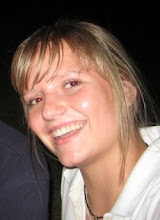For my presentation, I memorized 50 important works of architecture. I used the house I grew up in, now the house my parents live in. I'll go through the beginning, but not the whole thing because it's so personal it might be tedious for the normal reader.
--Crystal Palace: I started in the garage for this one, which I just pictured as a crystal palace
--Paddington Station: This was the key rack in the entryway. The station is a place of transportation and the keys facilitate transportation
--Statue of Liberty: A decorative cutting board that is hung on the wall. I pictured the cutting board having a picture of the statue
--Eiffel Tower: A wine rack next to the sink. It's made mostly of wires so it reminds me of the tower
--Galerie Des Machines: The sink, because it's a machine
--Reliance Building: The stovetop. It was designed by a guy named Burnham, so I thought of the burning stove
--Glascow School of Art: A print by Escher in the living room
--Larkin Building and Unity Temple: The bookshelf in the living room. Both of the buildings are by Wright, and we have a lot of books about him in the bookshelf
--Ponthieu Garage: The TV nook, because it's like a little garage for the television
--Palais Stoclet: My dad's office, because it's like his own little home
Now I'm just going to do the interesting ones...
--Turbine Factory: A sculpture my brother made for my mom that's dedicated to my grandpa. It's made completely of recycled farm machinery and reminds me of turbines that might be on a farm
--Schroder House: Our China cabinet. My grandma's maiden name is Schroeder, and we have all of her China on display here
--Fallingwater: The staircase, because it descends like a waterfall
--Kaufmann Desert House: My old room in the basement. The first time I visited my house after moving out, my parents had already converted my bedroom into a workout room. I thought the word "deserted" fit well here
